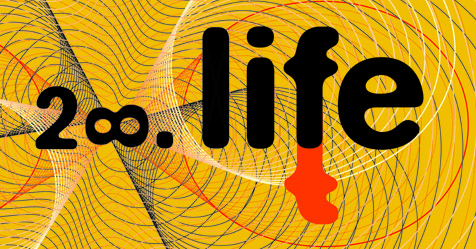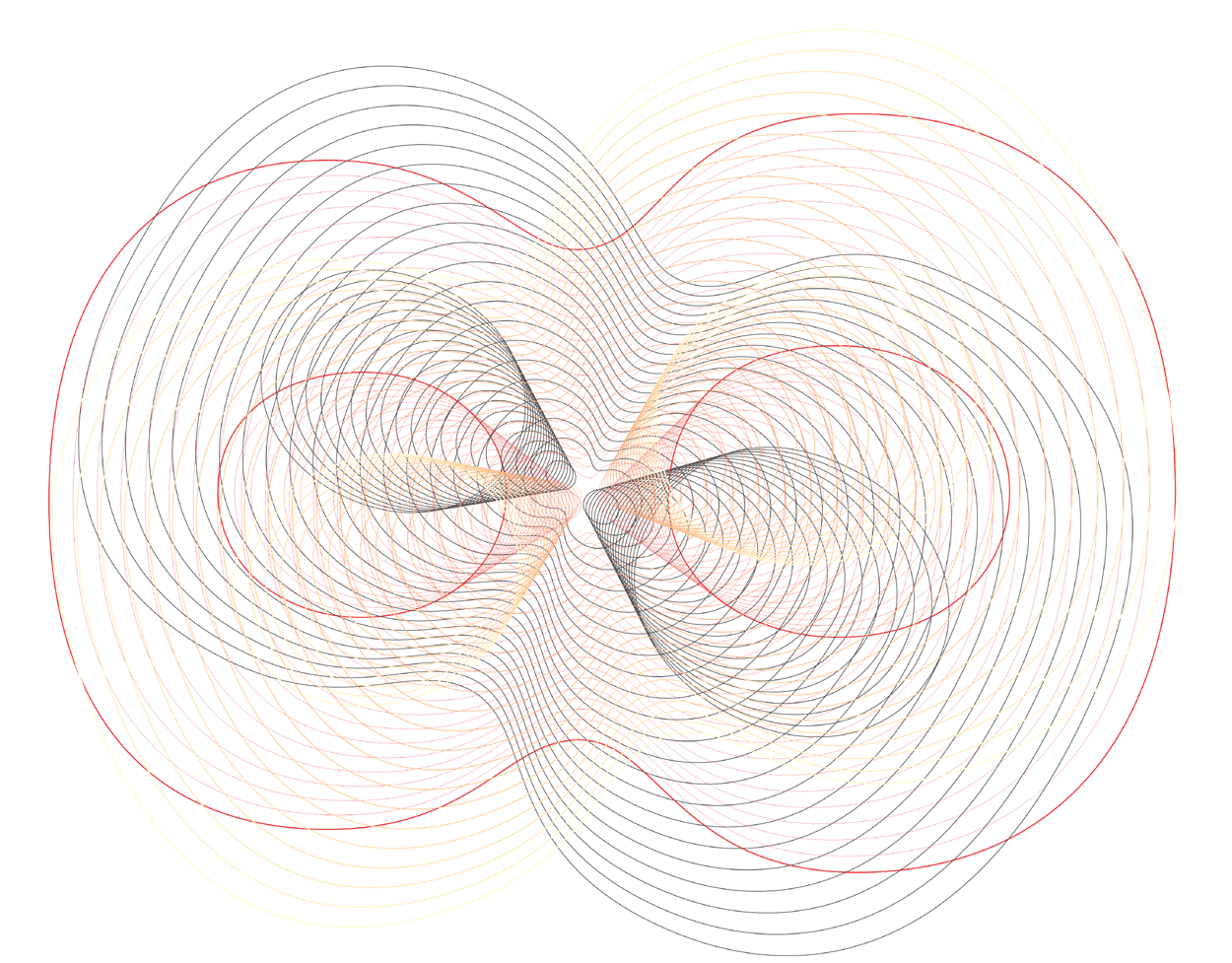On Saturday, 18 November, the 28th Ljubljana International Film Festival wrapped up, culminating with its conventional awards ceremony. The evening’s host, legendary Slovenian actor Boris Cavazza, addressed the audience by suggesting, “Let’s see what surprises and disappointments the future has in store for our contestants.” The Best 360˚ Film Award, sponsored by Telekom Slovenije, went to Group 3, consisting of Matej Lozar, Anja Čotar, Rok Jagodnik, Uroš Kokol and Sašo Stojak. The jury, comprising Miha Mazzini, Katarina Morano and Zvezdana Lazar, stated that the film’s assets were the minimalist employment of technology, seamless blend of animation and fiction and a liberating message.
The Kinotrip Youth Jury Award, bestowed for the second time this year, went to Call Me by Your Name by Luca Guadagnino. Members of the Kinotrip Young Jury, Rostja Močnik, Mila Peršin, Jakob Rakovec, Martin Draksler and Esma Hajdarpašić, have seen a selection of five films that raise important questions and address relevant social issues without underestimating their young protagonists and audiences. “The film that we found most inspiring was a fervent love story, deeply affecting in its heartfelt sincerity. The director’s poetic and accomplished new spin on this well-trodden genre is refreshing, while at the same time retaining its engaged tone. Universal and timeless, the movie’s haunting themes stay in one’s head for days.”
Stefano Cerato, director of the Italian Cultural Institute in Slovenia, accepted the award of behalf of the filmmaker.
The Audience Award went to Heartstone. Director of British Council Slovenia, Aida Salamanca, presented the award to Icelandic director and screenwriter Guðmundur Arnar Guðmundsson.
The FIPRESCI Prize, presented by the jury of the International Federation of Film Critics, went to Men Don’t Cry by Alen Drljević.
The jury, consisting of Salvatore Marfella, Angelo Mitchievici and Ana Šturm, asked themselves whether it was “possible to recover from war trauma and resolve deeply rooted feelings of hate? Can we rebuild hope and trust in a broken society? These are the questions that echo through this powerful, magnificently scripted and performed film, immersed in a heavy atmosphere of toxic masculinity, discomfort and mistrust.
For its sensitiveness in exploration of the complexity of wounded identities, precision in describing physical and psychological damages of war on people, and its strength in promoting the understanding, compassion and acceptance, the International Critics Jury awards the FIPRESCI Prize to Alen Drljević's debut film Men Don't Cry.”
The FIPRESCI Prize was accepted by Sebastian Cavazza, one of the lead actors in the film, who revealed that Men Don't Cry had already won Best Film Awards at the Istanbul, Bratislava, Rome and Zagreb film festivals.
The international jury for the Best Short Film Award, Špela Čadež, Daniel Ebner and Hana Jušić, decided to award two Special Mentions. The first went to The Beast by Samantha Nell and Michael Wahrmann, a film that “presents a reflective, respectful and very refreshing take on post-colonial structures from the perspective of performance workers in a Zulu cultural village.”
The second Special Mention went to a long but strong postmodern cinema essay with a lot of humour and cleverness, “[...] CRAVING FOR NARRATIVE” by Max Grau.
The Best Short Film Award, presented by sponsor TSE, d. o. o., went to I’m Not from Here by Maite Alberdi and Giedre Žickyte, “a great film that touched and surprised us on many levels. It's a sensitive portrait of an alienated woman fighting for her independence and identity in a foreign country and at the same time a subtly political documentary about care and nurse service as one of the biggest challenges of an aging society.” Festival Director Simon Popek accepted the award on behalf of the Lithuanian-Chilean filmmakers.
The Kingfisher Award is an international jury award granted by the general sponsor, Telekom Slovenije, d.d., to the best film of the Perspectives section. The international jury Dragan Rubeša, Jessica Kiang and Damjan Kozole unanimously awarded “a beautifully performed, unapologetically intellectual, quietly profound tribute to the consoling and connecting power of art – in this case architecture –, Columbus by Kogonada.”
On behalf of Kogonada, the award was accepted by His Excellency, the United States Ambassador to Slovenia, Brent Robert Hartley.
The Special Mention went to Araby by João Dumans and Affonso Uchoa “for its slow, sensitive build to a final act of grave and moving power, and for its honest portrait of the dislocating effects of economic instability on Brazil's casual labourers – and indeed the workers of the world.”
The ceremony was followed by The Party, Sally Potter’s witty comedy that veers off into tragedy. The traditional after-party at the CD Club was lavish and lively, attended by famous names in the world of cinema; Demeter Bitenc, Brane Završan, Manca Dorrer and Aleksandra Balmazovič, directors Karpo Godina, Eric Valette, Ása Helga Hjörleifsdóttir Festival Director Simon Popek, journalists Miša Molk, Tina Bernik and Mateja Valentinčič, singer Vlado Kreslin, radio announcer Jure Longyka, literary historian and critic Matevž Kos, journalist Ženjo Lejler, and bloggers Marko Crnković and Natalija Pihler.
Andraž Jež
Photo Iztok Dimc
On 18 November, a Q&A followed the screening of Requiem for Mrs J, a powerful drama examining the transition process in former Yugoslav countries against the backdrop of one woman’s personal crisis. Host Toni Cahunek talked to director and writer Bojan Vuletić who explained that after 2000 Serbia had undergone a period of break-neck transition. The new political and economic systems are causing far-reaching changes to the value system, which inevitably leads to a total identity crisis. Vuletić wished to cinematically portray the feelings of people deprived of their rights. Namely, many people still believe it is politically incorrect to openly declare that something’s not quite right.
The Serbian-Macedonian-Bulgarian co-production was shot on several locations. The disused factory, the setting for the nostalgic and desperate ramblings of Mrs J (brilliantly played by legendary Serbian actress Mirjana Karanović), is situated in Sofia, while most of the interior scenes were shot in Belgrade.
Andraž Jež
Photo Iztok Dimc
On 17 November, a Q&A with cinematographer Piotr Jaxa followed the screening of Animals, a dramatic horror film treading the fine line between reality and hallucination, wakefulness and dreams. The filmmaker, whose collaborations also include names as notable as Krzysztof Kieślowsky, believes the future of cinema lies in digitalisation and its advantages. He doesn’t miss the film reel – and the camera is here to stay. Jaxa, whose long filmmaking career spans over fifty years, revealed to Damjan Vinter that in future there would be less and less money to fund the arts – one would just have to get used to it. However, one has to be resourceful and the film medium has been democratised to the extent that anyone can make a movie today. A keen artist doesn’t need big studious and producers any more, only a computer and a good idea. His advice to the young filmmakers was: “Keep it simple.” It is on account of these limitations that the future is in co-productions – thus, Animals is a Swiss-Austrian-Polish co-production. That was why certain scenes (more precisely, “three shooting days”) were shot in Poland.
Differing considerably from the projects he has worked on so far, the film presented a considerable challenge. Jaxa first contemplated the idea to sharply separate the parallel worlds by employing different types of light, but came to the realisation that this would ruin the story and decided to shoot real-life scenes as well as illusions in the same colour codes. What surprised him was how widely different was the audience response depending on its screening venues.
Over the next three months he will wrap up his current project, an Irish-Swiss-Macedonian-Croatian co-production. He concluded by suggesting: “I’m available for any kind of co-production – call me if you need a cinematographer!”
Written by Andraž Jež
Photo Iztok Dimc
On 17 November, a Q&A with director and co-writer Eric Valette followed the screening of Thousand Cuts, an eccentric French crime film. Tina Poglajen, member of the Ljubljana International Film Festival Programme Committee, hosted the talk at the Komuna Cinema. Valette revealed that the story was based on a novel that had been relatively easy to adapt for screen. What appealed to him were the characters and dynamic pace, as well as the setting in Southern France, his native region. Furthermore, the novel has all the elements of a western, a genre he has a soft spot for: he simply felt he had to shoot a western set in the South of France. Apart from containing convincing action scenes, the movie is also socially engaged: addressing the issues of racism and globalisation. Vallette wanted to represent globalisation through the perspective of the butterfly effect, a concept stating that small causes can have larger effects. Although racism in the French countryside is not as blatant as it used to be decades ago, it still hasn’t been stamped out.
Valette additionally explained that two of his major influences were Straw Dogs, a thriller by Sam Peckinpah, and Open Range, a western by Kevin Costner. The film took five years in the making, during which time – in light of terrorist incidents in France and their political instrumentalisation – it acquired additional social relevance. It has grown to become a violent story dealing with a very profound European problem. Furthermore, the director included elements from different genres; he is particularly keen on iconic, excessive villains, and likes it when the viewers find them amusing. He also likes to challenge his audience: “Movies are not supposed to provide answers but encourage debate.”
Thousand Cuts has enjoyed very favourable reception – approximately 90-percent of its reviews were affirmative. As the director also works in television, Tina Poglajen asked him to comment on the differences in his approaches. “On TV I resemble the antagonist from the movie, and in the movie I am the antagonist.” He concluded by adding, »I always depict my personal form of torture.”
Written by Andraž Jež
Photo Iztok Dimc
Photo Iztok Dimc



